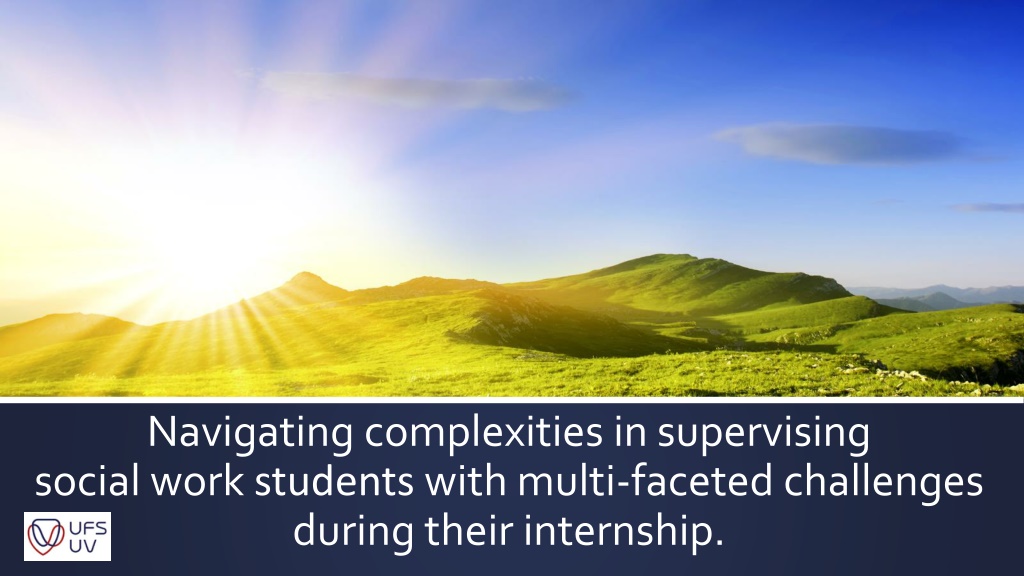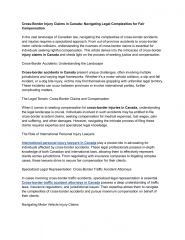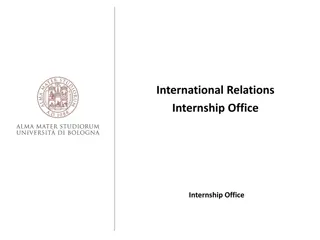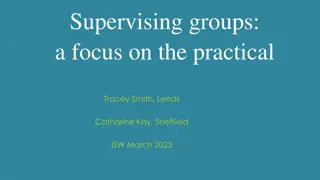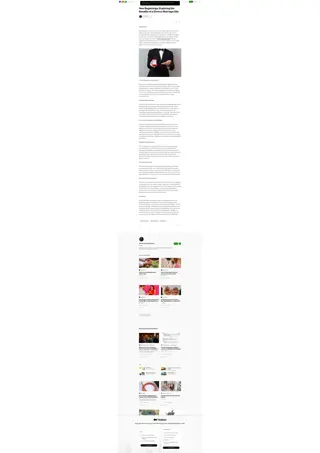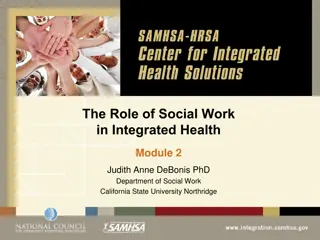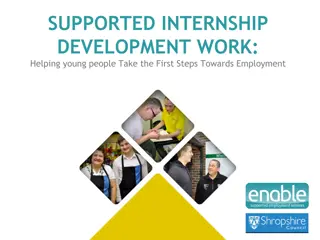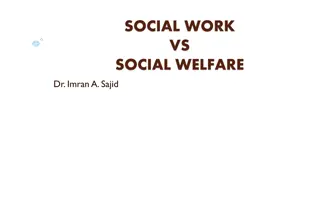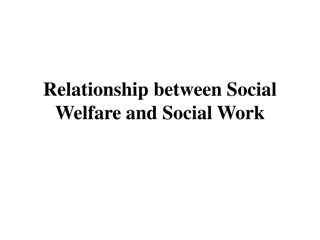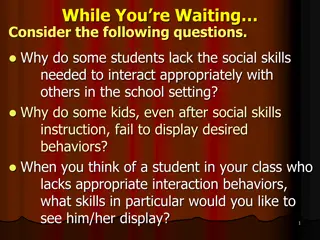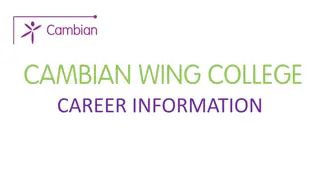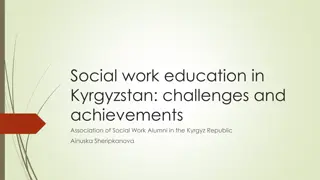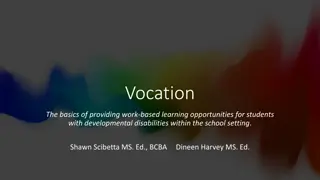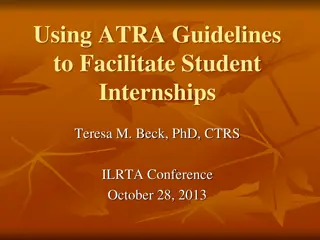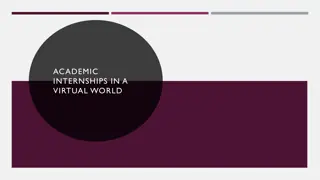Navigating Complexities in Supervising Social Work Students during Internships
Understanding the challenges in supervising social work students during internships is crucial. This includes exploring field instruction, social work supervision in South Africa, biopsychosocial needs, and the vision for graduates. Embracing principles of social justice and human rights, social work aims to empower individuals and promote social change. The session outlines key aspects of field instruction, offering insights into the supervision of social work students.
Download Presentation

Please find below an Image/Link to download the presentation.
The content on the website is provided AS IS for your information and personal use only. It may not be sold, licensed, or shared on other websites without obtaining consent from the author. Download presentation by click this link. If you encounter any issues during the download, it is possible that the publisher has removed the file from their server.
E N D
Presentation Transcript
Navigating complexities in supervising social work students with multi-faceted challenges during their internship.
Session outline What is social work? What is our vision for our graduates? What is field instruction? Social Work supervision in South Africa. What are biopsychosocial needs i.t.o. Maslow? A quick overview of RSA in 2023. Issues affecting students. Field instructor concerns: anecdotal accounts. Recommendations from South African literature How do we navigate the quagmire, a discussion. 2
The following definition was approved by the IFSW General Meeting and Assembly in July 2014: the IASSW General Global Definition of the Social Work Profession Social work is a practice-based profession and an academic discipline that promotes social change and development, social empowerment and liberation of people. Principles of social justice, human rights, collective responsibility and respect for diversities are central to social work. Underpinned by theories of social work, social sciences, humanities and indigenous knowledges, social work engages people and structures to address life challenges and enhance wellbeing. The above definition may be amplified at national and/or regional levels. cohesion, and the GLOBAL DEFINITION OF SOCIAL WORK https://www.ifsw.org/what-is-social-work/global-definition-of-social-work/ 3
WHAT IS FIELD INSTRUCTION? Field instruction for social work students, means the application of theory to real-life situations, i.e., integrating theory and practice, practical experience and developing a social work identity under the supervision of a qualified social worker (SACSSP, 2012; LaRocque, 2017; Bogo et al., 2020). For the Bachelor of Social Work qualification, work-integrated learning is considered to be a mandatory component (CHE, 2015). While there was a debate as to whether field instruction is the signature pedagogy of social work education, Nadesan (2019) concluded that recognising field instruction as the signature pedagogy of social work contributes significantly to the ongoing discourse on the importance of field instruction in social work education . 5
SOCIAL WORK SUPERVISION IN SOUTH AFRICA The brief of supervision of social workers is a mandated, formal arrangement by supervision policy, which entails the execution of supportive, educational and administrative functions by authoritative supervisor, with the ultimate goal to render the best possible services to the user system (Engelbrecht in O Donoghue and Engelbrecht, 2021). an agency Supportive Supportive a and designated trained SUPERVISION SUPERVISION Educational Educational Administrative Administrative 6
MASLOWS HIERARCHY OF NEEDS SELF-ACTUALIZATION CREATIVITY, FULFILMENT, SELF AWARENESS, PERSONAL GROWTH, MORALITY, SPONTANEITY, LACK OF PREJUDICE, PURSUE INNER TALENTS, PROBLEM-SOLVING SELF-ESTEEM CONFIDENCE, ACHIEVEMENT, MASTERY, RECOGNITION, RESPECT OF AND BY OTHERS, PRESTIGE, STATUS, STRENGTH, FREEDOM BELONGING LOVE, FAMILY, FRIENDS, INTIMATE RELATIONSHIPS, SENSE OF CONNECTION & BELONGING SAFETY SECURITY OF BODY, OF HEALTH, OF THE FAMILY, OF RESOURCES, OF EMPLOYMENT, OF STABILITY, OF PROPERTY, OF MORALITY, FREEDOM FROM FEAR PHYSIOLOGICAL FOOD, WATER, AIR, REST, CLOTHING, SHELTER, WARMTH, SEX, EXCRETION 7
Quick overview of RSA in 2023 The population of South Africa is 61.3 million people, with 56.8% of South Africans being poverty-stricken and the country being the most unequal in the world, with a Gini coefficient of 63.0. Official unemployment rate for Q1 2023: 32.9% [21.1 million] (Stats SA, 2023). 2.7% graduates are unemployed and 9 004 779 people were living in overcrowded households. 77% of households have access to piped water, but only 27% have safe, clean drinking water, when there is water. +2.1 million South Africans reported feeling hungry in 2021/2022 (Stats SA, 2023). South Africa is ranked number 10 on the list of countries with the most suicides with 23.5 per 100,000 100 000 population. South Africa also ranked lowest on the metal health well- being scale with the rate of distressed or struggling increasing to 36% in 2020. According to Govender (2023), South African women are killed by their intimate partner at five times the global rate, and by July 2023, 969 women were killed in domestic-violence related incidents (293 children). During this period, statistics suggest that over 15 000 women were sexually, and physically assaulted (Govender, 2023). Stats SA (2023) reiterates this as for 2022/2023, 74.7 murders were committed per day. 8
ISSUES AFFECTING STUDENTS Van Breda (2018) found that numerous students are psychosocially vulnerable , and this negatively impacts their studies. Biological aspects: hunger and nutrition, fatigue (insufficient rest and academic pressure), chronic illness, terminal illness, pregnancy, COVID-19, Long COVID, limited healthcare access, including reproductive healthcare access, pregnancy, access to feminine hygiene products, injury due to GBV/IPV and victimhood of violent crimes. Psychological aspects: depression, anxiety, suicidality (ideation and active attempts), stress, burnout, compassion fatigue, alcohol abuse, substance abuse, eating disorders, ADD, ADHD, ASD, COVID brain, GBV/IPV, surviving violent crime, burnout (academic pressure), fears related to job opportunities after graduation. 9
ISSUES AFFECTING STUDENTS Sociological aspects: accommodation (unsafe and unaffordable), eviction, GBV/IPV and violent crimes, harassment, racism and racial inequalities, language barriers as English is an Additional Language (not necessarily a second language), unemployment concerns, Basic Education background (quality of education in relation to school quintile), housebreaking, theft. Economic aspects: NSFAS, relative poverty, food insecurity, transport, rent, internship equipment and resources, water, digital access (equipment and internet access), 10
FIELD INSTRUCTOR QUOTES ON THE IMPACT ON PLACEMENTS I needed to counsel my student because he was triggered by what the child disclosed to him. How can I have a client intervene with a client? Why do students not receive therapy before coming for their field practice? Do you not give them therapy? How do I always end up with the students with mental health problems or chronic illness? From a student that had 2 suicide attempts in 2 years to one who has to go for regular iron transfusions. How can you expect them to function in the field? I have a student who was in remission and now has to go for chemo again. Will she be able to complete her placement? I cannot forget that one day my student was at the office and a few weeks later she lost her battle with cancer. She never got to finish her work, her dreams. She never got to terminate anything either. I m not insensitive, but what about her clients? . I have to bring two lunchboxes to work because my student doesn t have enough money to pay rent and buy food. It's not that she cannot budget. It s that there is not enough money to do both. And I can't expect her to work while she shungry . 11
FIELD INSTRUCTOR QUOTES ON THE IMPACT ON PLACEMENTS I need help. My student is supposed to run a group with offenders who have substance abuse problems. Then she first smoked her weed and ran the group smelling of weed to high heaven. I only realised this after the group when she came to give me feedback. How do I address this with her? Marijuana is now legal, and it is part of her religion and culture. She is a Rastafarian. But this is not acceptable for a social worker. To use a mind-altering substance at work. You can t be high and work with clients. Right? My student is an underwear model and yet she at our organisation. We work with sex offenders. Her social media accounts are public. Anyone who Googles her can see her being basically naked. How?! What happened to ethics? Students are forever on their phones. Sitting in their office. They re not doing their work. We arranged extra training for them, but they don t even practice the new skills they were taught. No initiative, no drive, no motivation, no critical thinking, no understanding of how to bring theory to life with real clients. What are you guys teaching them at varsity these days? 12
FIELD INSTRUCTOR QUOTES ON THE IMPACT ON PLACEMENTS They are saying they are already burnt out because they didn't have a holiday. It seems that the students are unable to dig deep - they need everything given to them on a silver plate. It's all about them, and not so much about the client. It's concerning . Some students dealing with personal issues that consume their energy and time and not focusing on the practicum . Students try to pick easy challenges to address (in community, group, and casework) and not the ones that will make a real difference. It s become more time consuming to supervise students because we must spoon-feed the The way they dress is unprofessional and even unacceptable at times. They have no respect for the profession and even for the Court. Didn t you teach them they have to dress properly? Tardiness: some students are late without a valid reason, and some will arrive late without informing the supervisor why this is the case or that they will be late. Unethical behaviour, lying and deceptive communication telling different stakeholders and lecturers different things and causing problems among them all. 13
LITERATURE RECOMMENDATIONS Van Breda (2018) reminds us that students are also human and that HEI s need to engage with them holistically. Various South African scholars (Engelbrecht, 2019) have called for the decolonisation and authentication of social work education, and by extrapolation, the supervision of social work students. Engelbrecht (2010) calls for the use of strengths-based interpretative frameworks for assessments and personal development plans in supervising social work professionals and Nadesan (2019) recommends that the student supervisor is aware of his/her methods of supervision, moving away from merely basing supervision on the apprenticeship model, and instead becoming developmental whilst carefully articulating a structured approach that would maximise the student s learning within the field instruction programme . Lecturers are asked to develop greater insight into the realities of students, be more empathetic and foster an additional circle of care that will make students feel more supported. (Van Breda, 2018) 14
The question remains: How do we maintain the delicate balance between providing effective support and maintaining professional boundaries while being mindful of students bio-psycho- socio-economic challenges and the overall success of the field placement? 15
REFERENCES Engelbrecht, L. (2021). Supervision of Social Workers within a Social Development Paradigm: A South African Perspective. In O Donoghue, K. and Engelbrecht, L. (Eds.), The Routledge International Handbook of Social Work Supervision. (pp. 50-63) Routledge. http://childrencount.uct.ac.za/indicator.php?domain=3&indicator=12 [20230802] https://www.eapasa.co.za/the-state-of-mental-health-in-south-africa/ [20230921] https://gsdrc.org/topic-guides/poverty-and-inequality/measuring-and-analysing-poverty-and- inequality/defining-poverty-extreme-poverty-and-inequality/ [20230802] https://www.ier.co.za/domestic-violence-in-south-africa-a-gendered-crime/ [20230918] https://www.ifsw.org/what-is-social-work/global-definition-of-social-work/ [20230802] https://www.sasop.co.za/mens-health [20230918] https://www.statista.com/statistics/1314504/unemployment-by-education-level-in-south- africa/#:~:text=As%20of%20the%20first%20quarter,percent%20of%20the%20total%20unemployed. [202309018] https://www.statssa.gov.za/?page_id=739&id=1 [20230802] https://www.statssa.gov.za/?p=16235 [20230802] https://www.statssa.gov.za/?page_id=1856&PPN=P0211&SCH=73571 [20230802] 16
REFERENCES https://ws.dws.gov.za/IRIS/releases/2021_BD_PAT_report_final-28Mar22_MN_web.pdf [20230906] https://worldpopulationreview.com/country-rankings/suicide-rate-by-country [20230918] Ibrahima, A. B., & Mattaini, M. A. (2018). Social work in Africa: Decolonizing methodologies and approaches. International Social Work. doi:10.1177/0020872817742702 Masoga, M. A. (2018). Foreword. In A. L. Shokane, J. C. Makhubele, & L. V. Blitz (Eds.),Issues around aligning theory, research and practice in social work education (Knowledge pathing: Multi-, inter- and trans-disciplining in social sciences series, Volume 1) (pp. xxiii xxiv). Cape Town, RSA: AOSIS. doi:10.4102/aosis.2018.BK76.00f Nadesan, V. (2019) A system analysis of field instruction in Social Work education. (Doctoral thesis) Johannesburg: University of Johannesburg. https://www.proquest.com/openview/40198956afb0f4769540efb1eaaae19d/1?pq- origsite=gscholar&cbl=2026366&diss=y (Accessed: 20221011) Available from: Ncube, M.E. (2019) A model of social work supervision in a social development approach. (Doctoral thesis) Johannesburg: University of Johannesburg. Available from: https://ujcontent.uj.ac.za/esploro/outputs/doctoral/A- model-of-social-work-supervision/9910268507691 (Accessed: 20230317) Sulla, V., Zikhali, P. & Cuevas, P.F. Inequality in Southern Africa : An Assessment of the Southern African Customs Union (English). Washington, D.C. http://documents.worldbank.org/curated/en/099125303072236903/P1649270c02a1f06b0a3ae02e57eadd7a82 [20230921] : World Bank Group. Van Breda, A. D. (2018). Resilience of vulnerable students transitioning into a South African university. Higher Education, 1(16). 17
English: Thank you Arabic: Shukran Afrikaans: Dankie Hindi: Dhanyavaad Zulu: Ngiyabonga Swahili: Asante Xhosa: Enkosi Amharic: Ameseginalehu Aisha Abrahams AbrahamsAT@ufs.ac.za 0514012567 0738988523 Sesotho: Kea leboha Shona: Ndatenda Setswana: Kea leboga Greek: Efcharist Siswati: Ngiyabonga Hebrew: Toda Tshivenda: Ndo livhuwa Portuguese: Obrigado IsiNdebele: Ngiyabonga Spanish: Gracias Sepedi: Kea leboha Mandarin: Xi xi Xitsonga: Ndza ku livhuh 18
